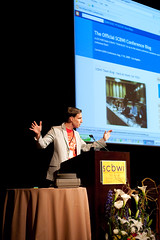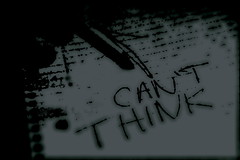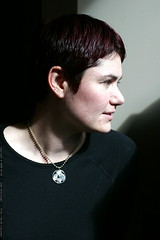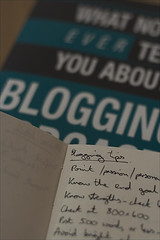I’m at a writers conference today, so I’ve pulled out a great guest post from the archives, which originally appeared as part of the writing resources series.
I love going to writing conferences. There’s something so inspiring about sitting in a large of group of people who all share your same passion. No matter whether it’s a big conference or small, both have their advantages.
 My first writing conference was a biggie. Back in 2007, I was living in Los Angeles and attended the big summer conference for the Society of Children’s Book Writers and Illustrators there. Three days of information, inspiration, fun, jokes, motivation and creativity. I sat in the big and small gatherings and soaked up everything I could, every word from the speakers as well as the every ounce of excitement in the air. By the end of the conference, I was hooked. It was like drinking a giant Slurpee cup of creativity, and I wanted more.
My first writing conference was a biggie. Back in 2007, I was living in Los Angeles and attended the big summer conference for the Society of Children’s Book Writers and Illustrators there. Three days of information, inspiration, fun, jokes, motivation and creativity. I sat in the big and small gatherings and soaked up everything I could, every word from the speakers as well as the every ounce of excitement in the air. By the end of the conference, I was hooked. It was like drinking a giant Slurpee cup of creativity, and I wanted more.
Since then, I’ve moved away from Los Angeles, but my love of conferences has continued. In my current home near Houston, I’ve found wonderful single-day conferences that give me just as much as that big summer conference, with the added benefit of a more intimate setting. At these smaller conferences, there’s much easier access to the speakers. Generally, at the summer conference, the attendance is so huge, the speakers are swarmed after every appearance. But smaller events are much more relaxed. Our annual Houston SCBWI conference holds a dinner where attendees can chat with the invited speakers over fajitas. What better way is there to get to know someone?
From conferences, you obviously get access to the information the speakers provide, which could be anything from an editor telling you what they’re looking for to an agent giving query letter writing tips. But there are lots of other benefits:
- Friends. Writing is solitary, and conferences give us an opportunity to get together with other people like us.
- Writing help. As well as the writing tips speakers often give, conferences usually offer critiques with professionals, including agents, editors and published authors. These usually require additional payment, but they can be worth.
- Contacts. Conferences are a chance to meet agents and editors you might work with later. Writers have made connections with editors at conferences and later sold them a book or been asked to write on assignment.
- Inspiration. Every writer has bouts of doubt and times when our creativity pool dries up. Going to conferences is like getting a shot of inspiration in the arm. This is a business of passionate people, and that passion brims over to attendees at conferences. Without fail, even if I haven’t heard anything new at a conference (which is rare), I’ve always left feeling energized, and that was worth the price of entry.
How do you prepare for a conference?
- First, research the conferences in your area. The SCBWI website has a list of the group’s events, but you can find others with an Internet search. Research the speakers and make sure they’re people you’d like to hear. There’s no point going to a conference focusing only on picture books if you write novels.
- Once you know which conferences you want to attend – and can afford – register early. If you plan to get a critique, registering early means you’re more likely to get the person you want. Also, many smaller conferences sell out, so registering early secures your space.
- A few days before the conference, research the speakers again. The conference will have their basic bio, but look around on the Internet for interviews and read their blog, if they have one. Jot down some notes in the notebook you’re planning to take. This way, when you see them speak, you’ll have a better idea of who they are.
- If there are any speakers you would like to talk to, perhaps to ask a question or just compliment them on one of the books they’ve worked on that you’ve read, seek out this person in a nice, polite way (i.e. not in the bathroom, not while they’re eating unless you happen to be sitting at their table, and not interrupting their conversation). If they’re talking to another attendee, stand by and wait your turn. Once you have their attention, introduce yourself, tell them what you love about their work, ask them your question, then thank them and say goodbye. Keep it short, sweet and professional. In my experience, speakers are more than happy to talk to attendees as long as it’s on a professional level.

Going to conferences can be a very rewarding way to boost your writing life. Take advantage of the conferences offered in your area, and when you get home, your brain will be begging you to start writing.
About the author
Samantha Clark writes middle-grade fiction and blogs about writing, children’s books and writing conferences at DayByDayWriter.wordpress.com. You can subscribe to DayByDayWriter to read more.
Photo credits: SCBWI conference—Rita Crayon Huang; click—Jordan McCollum






